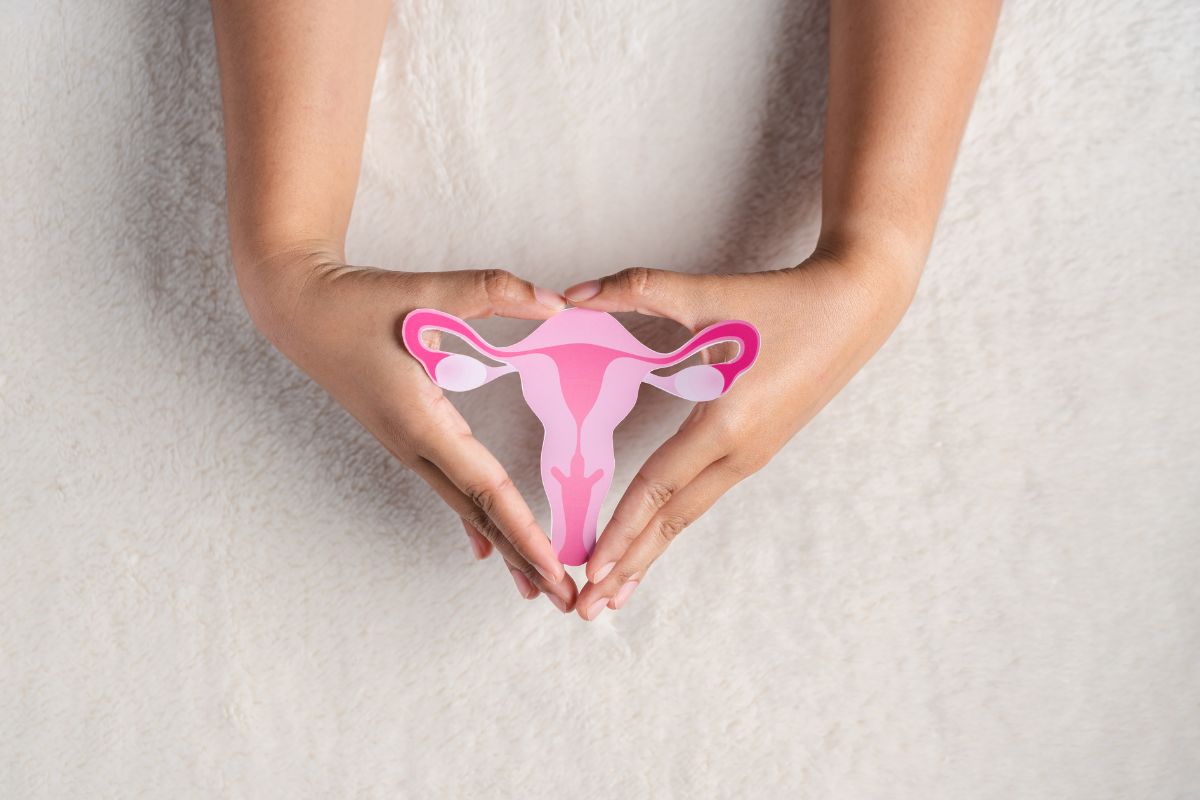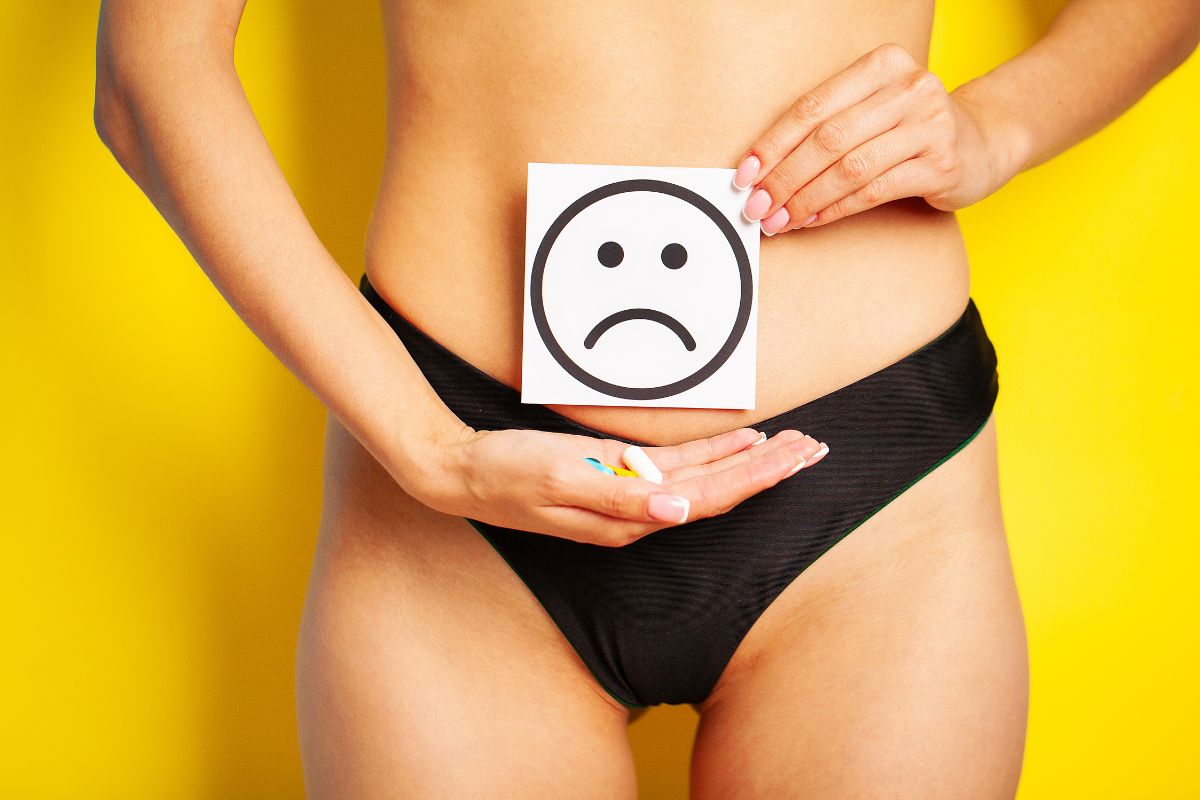Bacterial vaginosis, or BV for short, is a very common condition that affects the vagina.
In many cases, this condition is asymptomatic, which means that many people who have it are not even aware that they do.

A study done back in 2007 even found that of the 3,700 participants in a study (all aged between 14–49), 29.2% of them had BV.
The interesting part is that 84% of those individuals reported no symptoms of the issue at all.
Since this condition is so common, there are, of course, thousands of articles all over the internet talking about it.
Some give accurate information about causes and treatments, while others do not. There are hundreds of anecdotal home remedies for BV, but not all of them will have the desired effect.
In this article, we are going to cover six home remedies, lifestyle choices, and practices that are actually helpful in combating bacterial vaginosis.
Symptoms Of Bacterial Vaginosis
It is crucial to note that more than half of people who have or experience bacterial vaginosis are not even aware of it at the time.
This is because it is common for this issue to be asymptomatic.
However, if you do experience symptoms of BV, it may be the following:
- Your discharge being water and thin or grayish-white – a general change in the color or consistency of the discharge may be a symptom, but it is important to note that hormonal changes can also play a role in his
- Vaginal discharge may have a strong fishy odor – this may be particularly noticeable after having sex
Things That Are NOT Symptoms Of BV
There are a number of things that are in no way a symptom of BV that you should be aware of.
This includes the following symptoms:
- Itching
- Soreness
- Other unusual discharge
- Other unusual smells
If you experience any other symptoms, it would be a good idea to go to your healthcare practitioner and be checked for STIs or other health conditions.
6 Great Home Remedies To Combat Bacterial Vaginosis
Good health can start at home, as you can see from many of these remedies to combat bacterial vaginosis.
From practicing good sexual and vaginal hygiene to probiotics and antibacterial foods, we will cover the six things that you need to know if you have a vagina.
They could prevent a lot of unpleasant symptoms and discomfort!
1. Practice Good Sexual Hygiene
Although bacterial vaginosis is not a sexually transmitted infection (STI), having sex does put you more at risk of experiencing the health condition.
People who have sex frequently, especially with multiple partners or with people who also have a vagina, are more likely to get BV.
However, it is important to note that you can still get BV without ever having sex, too.
Nonetheless, you are at an increased risk if you are sexually active. This also includes using toys, fingers, or anything else around the vaginal area.
These things must always be thoroughly cleaned with unscented soap and water before being put in or around the vagina.
For this reason, you must always ensure that any partner you are with is clean.
People with uncircumcised penises are more prone to having poor hygiene due to the presence of the foreskin. The removal of the foreskin makes the penis easier to clean.
2. Practice Good Vaginal Hygiene
You hear the phrase “prevention is the best cure” very often throughout life, and in many cases, it is simply true.
When it comes to vaginal health and bacterial vaginosis, preventing it from occurring truly is better than having to deal with it and cure the issue.
When you practice good vaginal hygiene, you are helping to prevent future bouts of BV before they even start.
Good hygiene is also a great way to prevent making it worse if you already have BV, or even lessening the symptoms if you are experiencing any.
While there are a multitude of ways to practice good vaginal hygiene, we are going to talk about three of the most important. These might surprise you, so take notes!
Wipe Correctly
By wiping correctly, you can stop the spread of bacteria from your rectum to your vagina. This will, in turn, help to prevent bacterial vaginosis from occurring, and you will feel better for it.
Always wipe backwards from your vagina to the rectum, never forwards. You would be surprised by how many people do not know this, and the problems it can cause.
Stop Smoking
Unfortunately, smoking is also a risk factor for people with vaginas getting bacterial vaginosis. Studies have found a strong association between cigarette smoking and nicotine with BV.
While the exact cause is complex (feel free to read about the study linked), it is important to accept that there is a relationship.
As such, if you want to take steps to prevent bacterial vaginosis developing again, we would suggest quitting smoking. If you are not a smoker, now you have another reason not to start!
No Douching
Douching is supposed to clean your vagina, right? Sure, this is what it is marketed for, but the truth is, douching will always do more harm than good.
Doing this is actually a risk factor for experiencing bacterial vaginosis. It also puts you more at risk of experiencing a multitude of other vaginal conditions.
Due to this, the U.S. Department of Health & Human Services’ Office on Women’s Health had made it clear that people with a vagina should not be using a douche to clean them for any reason at all.
Unfortunately, douching is a common practice among many people. So, if you are one of those people, take this as your sign to stop.
3. Eat Antibacterial Foods
Prescribed antibiotics are often the first line of treatment for bacterial vaginosis.
While this can be great, the overuse of antibiotics will lead to the microbial organisms within your body being resistant to the treatments.
Because of this, antibiotics should only ever be prescribed in extreme cases, or when there is no other option.
It is likely that your body will build up a tolerance, and the antibiotics will not be able to help you when you truly need it.
However, it should also be mentioned that if you are ever given a course of antibiotics, it is crucial for you to finish the entire course.
You may start to feel better halfway through, but if you stop, the issue is likely to come back.
A good way to get around the need for unnecessary antibiotics is through eating foods that are naturally antibacterial.
Please note: antibacterial and antibiotics are medications that will either kill or inhibit the growth of bacteria only. Antimicrobial medications will not only kill bacteria, but also various other pathogens, including fungi.
There are a number of fantastic antibacterial foods that you can try to work into your diet however suits you.
Some of the best options include the following:
- Oregano
- Ginger
- Garlic (and other alliums)
- Turmeric
- Honey
- Raw apple cider vinegar
- Extra virgin coconut oil
- Fermented foods
- Echinacea
- Grapefruit seed extract
You will notice that many of these ingredients have been used in medicine to promote health for centuries in different parts of the world.
Echinacea has been used in Native American medicine for a long time, and turmeric has been used in various parts of Asia.
Honey has been used all around the world in medicine and healing due to its incredible antibacterial properties.
4. Enjoy Antibacterial Drinks
Similar to the above, taking antibacterial drinks will also greatly improve your health and help to fight against conditions like bacterial vaginosis.
There are a number of delightful antibacterial drinks you can enjoy every day that help boost your health.
Some popular options include the following:
- Various citrus juices, like grapefruit or orange
- Cinnamon in teas, coffees, or other drinks
- Turmeric added to milk
Luckily, there are many different ways to get these kinds of drinks into your diet – with the best option being simply enjoying them in the morning.
Drinks like orange or grapefruit juice are already globally enjoyed on mornings, as are teas and coffees.
You could also enjoy cinnamon drinks in the evening, or your turmeric milk. All these drinks are known for their fantastic abilities to kill bacteria.
This will, in turn, help to prevent bacterial vaginosis from developing.
5. Take Probiotics
Although eating and drinking antibacterial foods and drinks are incredibly beneficial, it is also important to note the importance of bacteria in our bodies.
There are lots of potentially harmful bacteria in and on us, but also good and beneficial bacteria.
So, while antibiotics are excellent at killing bacteria, they can often kill all the good, naturally-occurring bacteria as well.
This is very prevalent in bacterial vaginosis, as the harmful bacteria quickly grow and replace the healthy bacteria (lactobacilli).
Due to this increasing issue, there are doctors and clinicians who are trying to pair probiotic supplements or treatments which contain lactobacilli with antibiotic treatments.
This will help to keep the number of healthy bacteria up in our bodies, while taking care of and killing off the harmful bacteria, too.
It is important to note that this treatment is still relatively new, and research is still being done on its effectiveness.
However, early research has shown us that the results look promising! Nonetheless, more research must be done to look into the effects of the pairing, and see if there are any side effects we should be made aware of.
There are various probiotic supplements that you can get over the counter that contain lactobacilli.
However, there are also plenty of foods and drinks that are excellent sources of probiotics.
Some great probiotic-rich foods and drinks include the following:
- Kombucha
- Pickles
- Sourdough bread
- Sauerkraut
- Miso
- Kefir
- Cheeses (not all cheeses)
- Yogurts
- Tempeh
- Kimchi
- Buttermilk
- Natto
So, there are plenty of delicious food and drink options that you can turn to if you want to get healthy bacteria back in your body!
These foods might be medicinal (to an extent), but you will never know.

6. Be Careful Of What You Insert Down There
Finally – you need to know what you should and should not put up your vagina.
It doesn’t matter what these various lifestyle gurus claim about things like “yoni pearls”, the vast majority of gynecologists will never recommend that you use them.
In fact, gynecologists will never recommend that you put any foreign object in your vagina (and especially not for long periods of time).
This doesn’t stop with yoni pearls. You should not be putting douches up there either, like we mentioned earlier.
Avoid these various applications that companies are peddling, too – and don’t try applying garlic, tea tree oil, apple cider vinegar, hydrogen peroxide, and similar things up there, either.
Be very careful of what you put in and around your vagina. As we have mentioned before, good hygiene can help to prevent bacterial vaginosis from occurring.
If you are not careful with what you put up there, you run the risk of bad hygienic practices.
A Good Option Is Boric Acid
With that being said, the one thing that is gynecologist-approved is boric acid supplements. This is a type of medication that is recommended and is considered to be totally safe.
Boric acid is not known to have any major side effects, with even minor side effects being quite rare.
However, this should still be avoided by people who are in their first trimester of their pregnancy. After the first trimester, it is considered safe to use.
Not only can Boric acid be used to help with bacterial vaginosis, but it has also been proven to help with other types of vaginitis.
This includes things such as trichomoniasis and yeast infections.
The use of this for things like bacterial vaginosis is still being searched, however, and studies predict that it will be between 77–88% effective.
Just be sure to ask your OBGYN to see if they would recommend this kind of treatment for you and your personal situation.
Please note – boric acid is NOT the same thing as borax, but they do both come from the element boron. We definitely do not suggest inserting Borax into the vagina, either, if that even needs to be said.
Final Thoughts
Bacterial vaginosis is more common than you might think, and it often flies under the radar. The majority of people who experience this are not even aware of it at the time.
Because of this, it can be a relatively unproblematic issue for many. However, if left untreated, there is the potential for it to cause more widespread and serious issues.
These issues may include things like pelvic inflammatory disease (PID), preterm birth in pregnant people, an increased risk of getting STIs, and more.
If you do suspect that you might have BV, it would be a good idea to get checked in with your OB GYN or healthcare professional.
It is always better to be safe than sorry with things like this! Take care of your health, and make an appointment.



